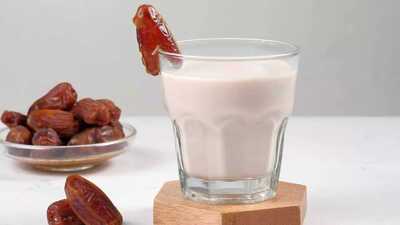There’s no denying that acidity is one of the most unnerving experiences, which happens when the stomach acid flows back into the esophagus, causing discomfort, heartburn, and bloating. While most people stick to medications and pills to heal this common digestive flare up, there’s one age-old remedy, which is believed to heal this sudden condition. Here’s all you need to know about acidity and what happens when you drink raw milk?

Is milk good or bad?
Milk is basically alkaline in nature and can provide a temporary soothing effect on the stomach lining. The fat and protein in milk coatsthe stomach wall, which may reduce irritation caused by excess acid. This is why many people feel immediate relief after drinking a glass of milk during an acidity flare-up.
Why consume milk
Raw milk, which is unpasteurized and consumed directly from cows or buffaloes, is sometimes claimed to be more effective than processed milk because it contains natural enzymes and probiotics. These may support gut health and digestion, which in turn could help reduce acidity episodes in some individuals.

Is it good or bad?
While raw milk might offer short-term relief, it is not a guaranteed or permanent solution for acidity. In fact, milk’s proteins can sometimes stimulate the stomach to produce more acid later, which may worsen reflux in some cases. Moreover, raw milk carries a higher risk of bacterial contamination (like E. coli, Salmonella, or Listeria), which can cause serious infections.
What studies say
Research on milk and acidity shows mixed results. A study published in the American Journal of Clinical Nutrition highlighted that while milk initially buffers stomach acid, it can later stimulate acid production, making it less reliable as a long-term remedy.
Is milk good or bad?
Milk is basically alkaline in nature and can provide a temporary soothing effect on the stomach lining. The fat and protein in milk coatsthe stomach wall, which may reduce irritation caused by excess acid. This is why many people feel immediate relief after drinking a glass of milk during an acidity flare-up.
Why consume milk
Raw milk, which is unpasteurized and consumed directly from cows or buffaloes, is sometimes claimed to be more effective than processed milk because it contains natural enzymes and probiotics. These may support gut health and digestion, which in turn could help reduce acidity episodes in some individuals.
Is it good or bad?
While raw milk might offer short-term relief, it is not a guaranteed or permanent solution for acidity. In fact, milk’s proteins can sometimes stimulate the stomach to produce more acid later, which may worsen reflux in some cases. Moreover, raw milk carries a higher risk of bacterial contamination (like E. coli, Salmonella, or Listeria), which can cause serious infections.
What studies say
Research on milk and acidity shows mixed results. A study published in the American Journal of Clinical Nutrition highlighted that while milk initially buffers stomach acid, it can later stimulate acid production, making it less reliable as a long-term remedy.
You may also like

Potholes claimed 2161 lives in 2023, wrong side driving, 9432

Rajasthan Congress boycotts all party meeting before monsoon session

Nicolas Jackson responds to Chelsea transfer announcement amid Bayern Munich 'agreement'

Telangana To Be Developed As Global Sports Destination: Official

Man, known for motivational speeches on YouTube, held for burglary in Odisha






